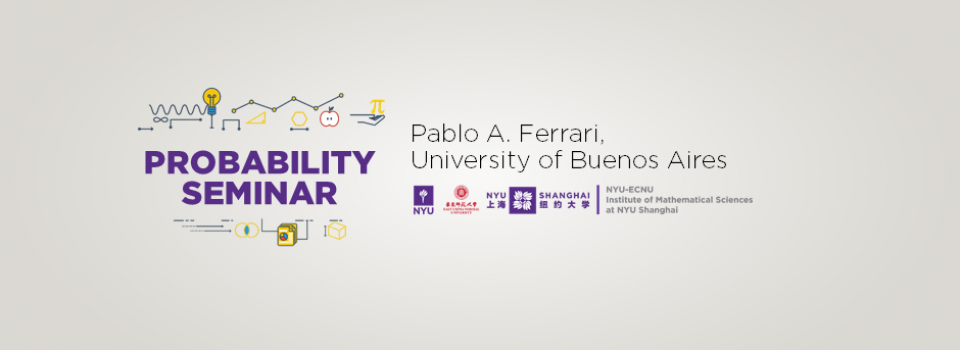
ABSTRACT OF THE TALK
The BBS has been introduced by Takahashi and Tatsuma in 1990 as a discrete analog of the KdV pde. This partial differential equation has many soliton solutions. In the BBS a box is placed at each integer number and can either be empty or contain a ball. A carrier with infinite capacity visit successively the boxes from left to right. The carrier picks balls from occupied boxes and leaves carried balls at empty sites. If the initial configuration of balls has density less than 1/2, the automaton is well defined in Z (the carrier has always a finite number of balls). The product measure at any density less than 1/2 is invariant but there are many other invariant measures that are not product. The automaton has infinitely many conserved quantities which travel at different speeds (solitons). We describe factorization properties of the set of spatially mixing invariant measures for the BBS and describe the speed interaction of the solitons. Work in collaboration with Chi Nguyen, Leonardo T. Rolla and Minmin Wang.
BIOGRAPHY
Pablo A. Ferrari is a Professor at the University of Buenos Aires. His area of research is interacting particle systems, mathematical statistical mechanics and conditioned Markov processes. In this field, Prof. Ferrari has worked on hydrodynamics of the simple exclusion process leading to the Burgers equation. In particular, he has identified the second class particles as the microscopic analogues of the characteristics of the equation. He also worked on perfect simulation schemas to prove uniqueness of Gibbs measures of the Ising model, as well as more general spatial processes. Ferrari also has coauthored papers establishing conditions for the existence of quasi-stationary distributions. More recently he has been working on particle systems with free boundaries and their convergence to free boundary models like the Stefan problem.
Seminar by the NYU-ECNU Institute of Mathematical Sciences at NYU Shanghai


